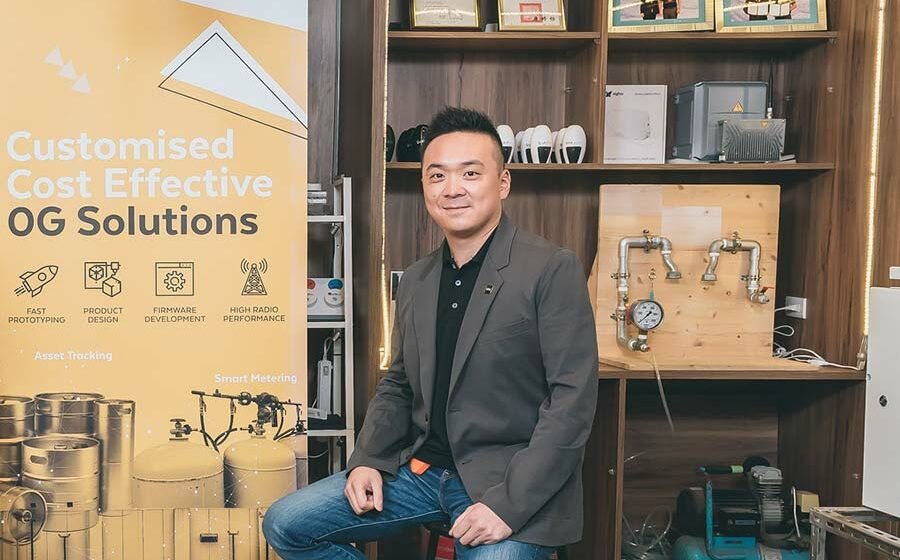Top 10 Fastest Growing Telecom Companies To Watch in 2023

.jpg)
Title: Unabiz: Pioneering the Future of Telecom with Low Power Wide Area Networks (LPWAN) In the symphony of modern telecommunications, each innovation plays a unique note, contributing to the harmonious evolution of connectivity. In this grand composition, Unabiz emerges as a virtuoso, wielding the transformative power of Low Power Wide Area Networks (LPWAN). Founded in 2015, Unabiz isn't just a player in the orchestra; it's a conductor, guiding the melody of connectivity into new realms. As the world embraces the Internet of Things (IoT), Unabiz's LPWAN solutions become the conductor's baton, orchestrating a tune that resonates with global reach, cost efficiency, and an energy-conscious cadence. This article takes a front-row seat to witness Unabiz's performance, exploring the intricate notes of their technology and the symphonic impact it has on the telecommunications stage. Unabiz's Foundation and Vision: Founded in 2015, Unabiz set out with a clear vision—to address the challenges associated with connecting a myriad of devices in a cost-effective, energy-efficient, and scalable manner. Traditional cellular networks often fall short in meeting the specific requirements of IoT devices, which are characterized by sporadic data transmission and a need for extended battery life. Unabiz aimed to bridge this gap by introducing LPWAN technology, offering a unique blend of long-range connectivity and low power consumption. The Unabiz Advantage: LPWAN Technology: Unabiz's primary strength lies in its use of LPWAN technology, specifically the Sigfox network. Sigfox is a global LPWAN standard that enables long-range communication with minimal power consumption. This technology is particularly well-suited for IoT applications that demand extended battery life and efficient use of resources. Global Connectivity: Leveraging the Sigfox network, Unabiz provides global connectivity for IoT devices. This global reach eliminates the need for complex roaming agreements and facilitates the deployment of IoT solutions on an international scale. It's a game-changer for businesses with a global footprint or those seeking to expand their IoT deployments beyond regional boundaries. Low-Cost Connectivity: Unabiz's LPWAN technology offers a cost-effective solution for IoT connectivity. The minimal infrastructure required for LPWAN deployment translates to lower operational costs, making it an attractive option for businesses aiming to implement large-scale IoT solutions without breaking the bank. Energy Efficiency: IoT devices connected through Unabiz's LPWAN technology benefit from exceptional energy efficiency. Devices can operate for extended periods on battery power, reducing the need for frequent maintenance and enhancing the overall sustainability of IoT deployments. Unabiz's Applications: Asset Tracking: Unabiz's LPWAN technology is ideal for asset tracking applications. Whether it's monitoring the location of shipping containers, tracking valuable assets in real-time, or managing inventory across a supply chain, Unabiz's connectivity solutions provide the reliability and range required for efficient asset tracking. Smart Cities: In the context of smart cities, Unabiz's technology contributes to the deployment of IoT devices for various applications, including waste management, environmental monitoring, and smart parking. The low power consumption of LPWAN devices ensures longevity and sustainability in these urban deployments. Industrial IoT (IIoT): Industries such as manufacturing leverage Unabiz's LPWAN technology for industrial IoT applications. From monitoring equipment performance to ensuring the seamless flow of data in large industrial facilities, Unabiz's connectivity solutions enhance operational efficiency and facilitate data-driven decision-making. Agriculture: Precision agriculture benefits from Unabiz's LPWAN technology, enabling farmers to deploy sensors across vast fields for real-time monitoring of soil conditions, weather patterns, and crop health. The low power requirements of LPWAN devices make them well-suited for remote agricultural deployments. Exclusive Insights from Co-CEO Philippe Chiu: In an exclusive interview with Philippe Chiu, Co-CEO and Co-Founder of Unabiz, we gained valuable insights into the company's vision, challenges, and the role Unabiz plays in shaping the future of telecommunications. Q: What inspired the founding of Unabiz, and how does the company's LPWAN technology address the specific challenges of IoT connectivity? Philippe Chiu: "Unabiz was founded with a vision to make IoT connectivity simple, scalable, and cost-effective. Traditional cellular networks were not optimized for the unique requirements of IoT devices—sporadic data transmission, extended battery life, and cost efficiency. Our LPWAN technology, based on the Sigfox network, specifically addresses these challenges by providing long-range connectivity with minimal power consumption, making it an ideal solution for a wide range of IoT applications." Q: Can you elaborate on the advantages of LPWAN technology, particularly in terms of global reach, low-cost connectivity, and energy efficiency? Philippe Chiu: "LPWAN, and specifically the Sigfox network we leverage, offers a trifecta of advantages. The global reach of the network ensures that IoT devices can seamlessly communicate across borders without the complexities of roaming agreements. The low-cost nature of LPWAN deployment makes it economically viable for businesses to implement large-scale IoT solutions. Additionally, the energy efficiency of LPWAN devices is crucial for applications where battery life is a critical factor, enabling devices to operate for extended periods without frequent maintenance." Q: What are some notable success stories or use cases where Unabiz's LPWAN technology has made a significant impact? Philippe Chiu: "We've witnessed impactful implementations across various industries. In asset tracking, our technology has facilitated the real-time monitoring of valuable assets, reducing the risk of loss and optimizing logistics. In smart cities, Unabiz's connectivity solutions have contributed to more efficient waste management, improved environmental monitoring, and streamlined parking solutions. Industries such as manufacturing and agriculture have also seen tangible benefits in terms of enhanced operational efficiency and data-driven decision-making." Q: Looking ahead, what is Unabiz's vision for the future of IoT connectivity, and how does the company plan to stay at the forefront of innovation? Philippe Chiu: "Our vision for the future revolves around continuing to simplify and democratize IoT connectivity. We aim to empower businesses of all sizes to harness the potential of IoT without the complexities and high costs traditionally associated with connectivity. Staying at the forefront involves constant innovation, adapting to emerging technologies, and working closely with our partners and clients to understand and address their evolving needs. Unabiz is committed to being a driving force in shaping the future of telecommunications and IoT." Unabiz's pioneering efforts in the realm of LPWAN technology are reshaping the future of telecommunications, particularly in the context of IoT connectivity. The company's commitment to simplicity, scalability, and cost-effectiveness positions it as a key player in the growing IoT landscape. As the world becomes increasingly connected, Unabiz's LPWAN technology stands as a testament to the transformative power of innovation, enabling businesses to unlock new possibilities and drive efficiency in their operations. The exclusive insights from Co-CEO Philippe Chiu provide a deeper understanding of Unabiz's vision, the advantages of LPWAN technology, and the company's strategic outlook. As Unabiz continues to push the boundaries of IoT connectivity, it remains poised to play a pivotal role in shaping the digital future, where devices seamlessly communicate, and industries harness the full potential of connected ecosystems.






